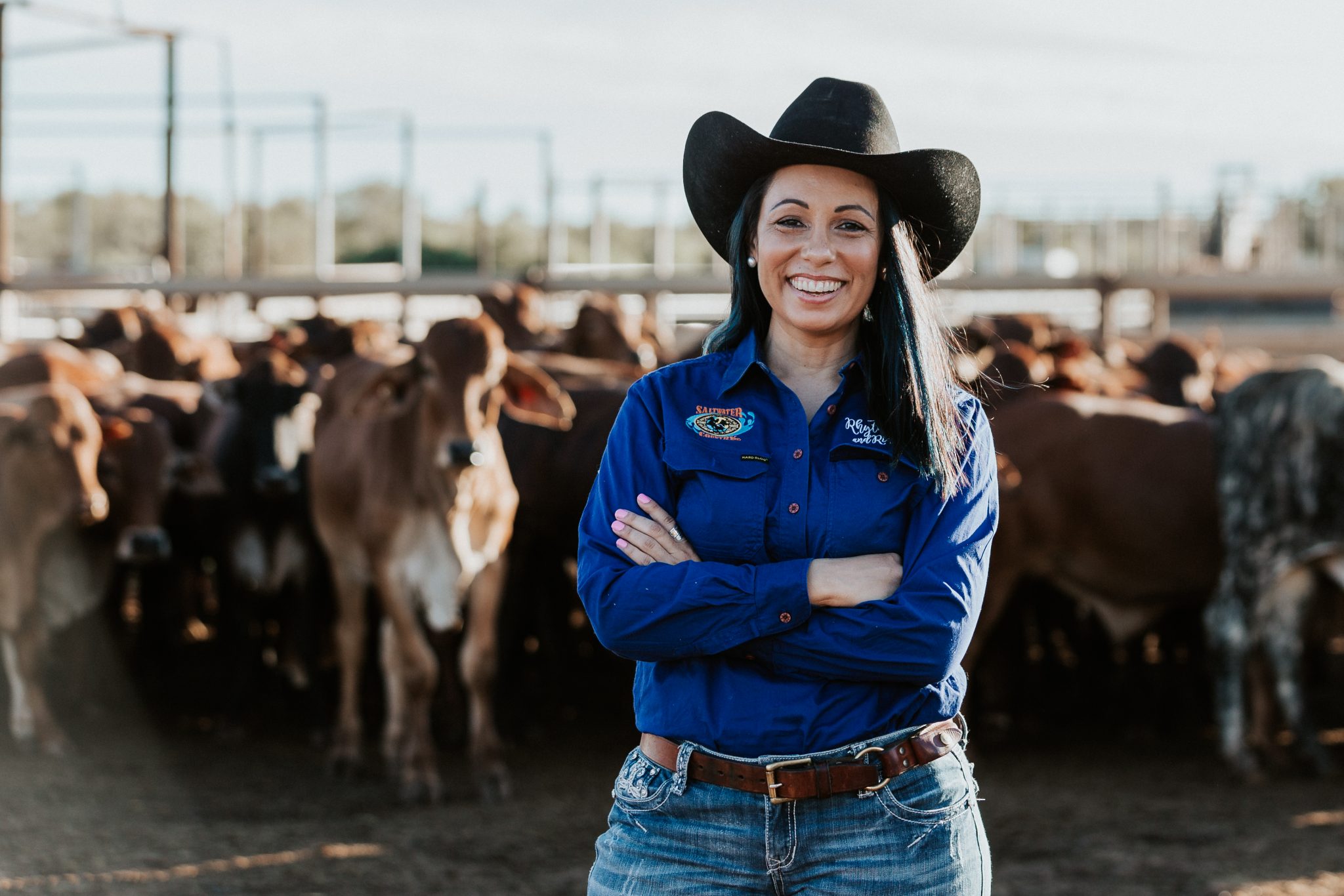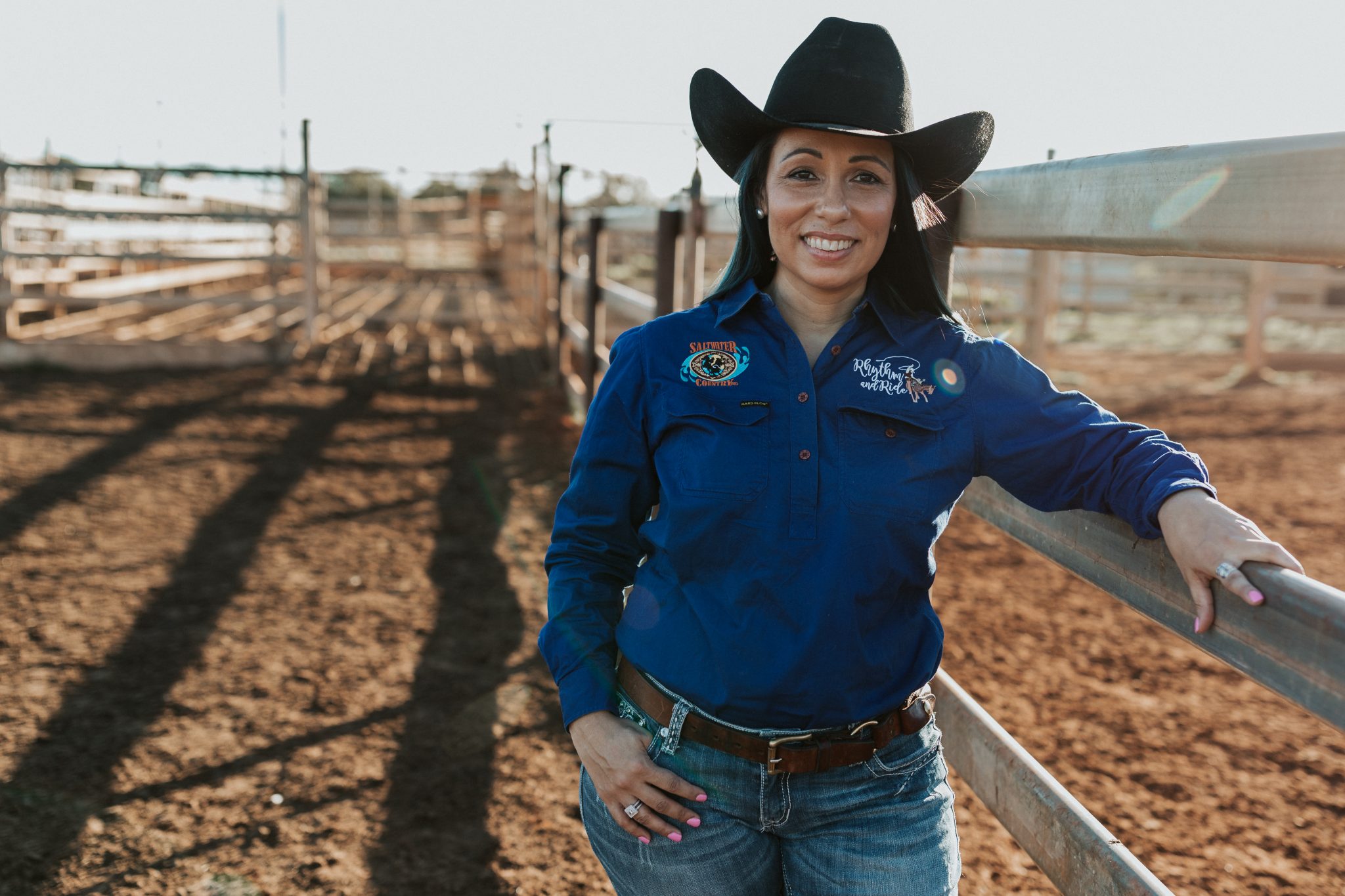The land where the desert meets the sea is laced in Cara Peek’s bones.
The Yawuru/Bunuba woman moved back to Broome, her mother’s country, 12-years-ago from her the bustle of her native Melbourne. It was a homecoming that felt natural for the Native Title lawyer; welcomed by the land of ochre and blue.
“I’ve travelled the world, but there’s nothing like the Kimberley,” she says. “It’s a sense of freedom that I haven’t really ever found anywhere else.”
Cara is the chair and founder of Saltwater Country, a not-for-profit that uses rodeo sports, along with country music events, to re-engage at-risk Indigenous youth and community with their rich pastoral history. From bull riding clinics to its annual Rhythm & Ride Rodeo, Campdraft and Country Music Festival, Cara says the idea for Saltwater Country sparked when she saw how rodeo sports resonated with her community, helping to build on the legacy of strength and resilience of Aboriginal stockmen and women.
“I noticed there were no Indigenous people running the show really anywhere and definitely not from top to bottom of an organisation,” she says. “We started with an event four years ago and then we thought, everything here is a teachable moment. That’s where the Saltwater Academy Project and training rolled out; evidence-based programs for our people, by our people.”
Cara has experienced plenty of teachable moments along the way. Studying a double degree of psychology and law, she was Melbourne University’s first Indigenous exchange student, travelling to Canada’s University of British Columbia before working in the Northwest Territories and then in Arizona. There, she worked for Rio Tinto in community liaison and engagement with the San Carlos Apache Nation.
“It was definitely a formative experience. It was funny working with the Apache, as their sense of humour and mannerisms are very similar to First Australians,” she says. “I was over there and I fit in so easily. When they would say certain things or particular mannerisms, I was like, where am I? I feel like I’m with my family right now.”
The eldest of three children, the 40-year-old says she was born an advocate. Growing up in a working class suburb in Melbourne, her mother was a nurse while her father was a photographer.
“I’ve got a long line of pretty strong advocates and thinkers in our family. My Mum says from day dot, I knew exactly who I was and what I wanted. Mum was actually the greatest guiding light and strength that I had the privilege of being around when I was a child and growing up,” she says. “She took me to hear Nelson Mandela speak when he was released (from prison) and came to Australia.”
Growing up in Melbourne’s south-east, there was a strong essence of multi-culturalism that fed Cara’s understanding of people and culture. “Everybody worked really hard, but were also community oriented. It was a really diverse mix of lived experience, from new immigrants to Indigenous people and a mainstream community” she says. “I think that type of experience was inspiring – just the commitment of people to better their lives in one way or another.”
Moving to Broome to spend more time with her grandmother, she realised there were more ways to help her community better their own lives. Founding Saltwater Country, she says the brutal truth – that climbing on the back of a bull is no more dangerous than living in the Kimberley as a young Indigenous person – is hard for outsiders to comprehend.
“When you live in a community that has the highest suicide rate in the world, jumping on a bull is not really the biggest risk you’re going to take. If people want to pass judgement, they need to experience the lived experience of our people. There is intergenerational trauma that manifests in despair and depression,” she says. “The collective success of our people in delivering events and programs is empowering in the social, emotional and economic development and advancement of Indigenous people in the north. It provides real time experience and solutions – it’s a place for our people to shine. It’s also an opportunity for training and development with transferable skills.”










